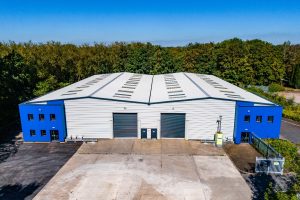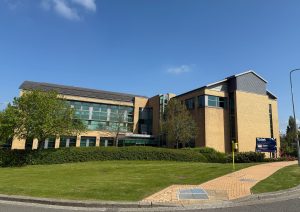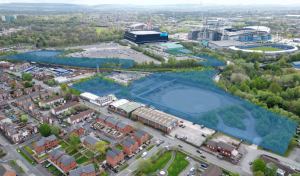Storm of protest over Church conversion

A PLAN to restore the former Welsh Baptist Chapel in Manchester, listed as one of the most at risk Victorian buildings in the country, has provoked a storm of protest from Muslim worshippers who have used part of the building for the past 40 years.
Derby-based Church Converts is proposing to turn the council-owned chapel and an adjoining Sunday School building into 93 flats aimed at post-graduate students.
The plan has been recommended for approval at a planning committee meeting today, despite protests from around 2,500 regulars at the mosque and Islamic Academy which has been based at the site since 1974.
Their comments have been reproduced in council papers and convey a sense of betrayal that a place of worship is being lost. They also say they have been treated unfairly by the council after 40 years as tenants and have launched a legal challenge against an eviction notice.
One said: “It is disgraceful that MCC has let this beautiful building fall into ruins, and then sneakily try to sell it off without giving their tenants of 40 years any chance of finding a suitable alternative.”
In a statement issued in August the Academy said: “On our part, we have tried extremely hard to protect these historic buildings despite the lack of dedication by MCC. It should be noted that we have not occupied the Welsh Baptist Church since 1987 [and has since operated from the Sunday School].
“At this time, MCC were intending to conduct a survey and carry out repairs but this was never done. We proposed a substantial development plan to English Heritage and MCC, but this fell through due to the lack of commitment by MCC. We later began negotiations with MCC in 2007 to purchase the annexe but these fell through due to uncertainties pertaining to MCC’s conditions of sale.”
The grade II* listed structure was designed by Sir Charles Barry shortly before working on the Houses of Parliament and the Manchester Athenaeum, now part of the Manchester Art Gallery.
It was built as a Unitarian Chapel in 1837 and acquired by Welsh Baptists in the 1920s. The Jehovah’s Witnesses then used it in the 1960s until it was compulsorily purchased by Manchester City Council in 1974 in order to make way for a planned motorway. This idea was shelved and the building was then leased to the Islamic Academy of Manchester. The roof of the main church building was removed in 2006 due to safety fears but the Sunday School building, that houses the mosque, is in tact.
In their report planning officers say: “The plan to bring this building back into sustainable re-use that with preserve what remains of this highly significant heritage asset is very welcomed indeed.
“The proposed development would enable the retention, repair and restoration of the former Chapel and Sunday School buildings, and enable the conversion of the interior to a viable long term use appropriate to the area, thereby retaining the heritage asset as an important landmark in the street scene.”
The Islamic Academy’s protests about the eviction notice and lease arrangements “have also been noted, but do not fall under the control of planning legislation”.
There have also been protests by a neighbouring car dealership, and a man living in Gloucester who is concerned about the remains of his great grandfather, his wife and four children that lie in the cemetary. The plans involve adding a new building in part of the graveyard.
Church Converts has acquired a lease from the council and plans to buy the freehold. The business is owned by restoration architect Derek Latham, developer Simon Linford and lawyer Michael Copestake.








